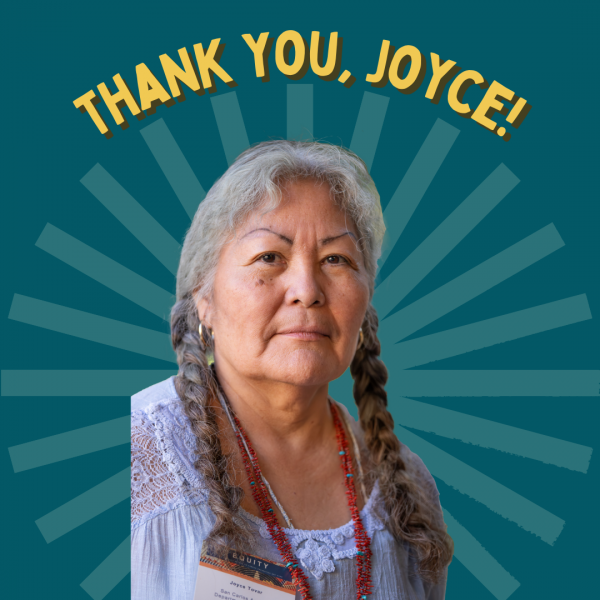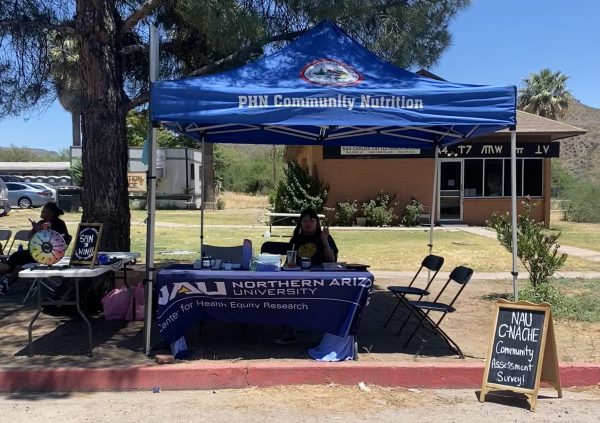Bridging Community and Cancer Equity: Joyce Tovar’s Impact on San Carlos Apache Cancer Care
Cancer care equity has long been a challenge for Native American communities. At the forefront of addressing this issue is the Center for Native American Cancer Health Equity (C-NACHE), housed at Northern Arizona University. One of its groundbreaking initiatives, the Community Cancer Services and Burden Assessments (CA), is set to transform how tribal communities understand and address cancer prevention, screening, and care. At the heart of this effort for the San Carlos Apache Tribe stands Joyce Tovar, a tireless advocate and health educator.
A Collaborative Vision for Cancer Health Equity
The C-NACHE CA project represents a significant stride in engaging tribal communities to identify and prioritize their unique cancer care needs. It aims to survey 6% of the adult population across 19 Arizona Native Nations that currently lack dedicated cancer programs or resources. With a community-based approach, the survey features core questions designed to gauge local awareness of cancer services and identify community priorities.
This collaborative endeavor relies heavily on tribal liaisons to secure community trust and participation—a role that Joyce Tovar has embraced with unmatched passion and commitment.
Meet Joyce Tovar: Health Educator and Tribal Liaison

Joyce Tovar is no stranger to the devastating impact of cancer. Having lost her parents, husband, and other relatives to the disease, Joyce’s commitment to her community’s health is deeply personal. As a health educator for the San Carlos Apache Tribe Department of Health and Human Services (SCAT-DHHS) and a C-NACHE Community Advisory Board member, Joyce brings invaluable insight and leadership to the CA project.
Her advocacy began more than a decade ago with the creation of an annual event during Breast Cancer Awareness Month. Over time, this event evolved into “San Carlos Cancer Awareness,” a holistic approach to honoring cancer patients, survivors, and families while promoting screenings and prevention.
Driving Change Through Collaboration
Joyce’s impact on the CA project began with helping to navigate the tribal approval process—a critical step that involved obtaining signatures on tribal resolutions and presenting to key committees. Her position within the SCAT-DHHS enabled her to facilitate these crucial partnerships, paving the way for survey implementation.
 Once approved, Joyce spearheaded recruitment strategies. She identified community events, such as the Apache Independence Day celebration, as opportunities for survey distribution. At this particular gathering, Joyce helped us by setting up a booth and spreading the word of the survey, which ended up helping us secure over 100 surveys in a single day.
Once approved, Joyce spearheaded recruitment strategies. She identified community events, such as the Apache Independence Day celebration, as opportunities for survey distribution. At this particular gathering, Joyce helped us by setting up a booth and spreading the word of the survey, which ended up helping us secure over 100 surveys in a single day.
But Joyce didn’t stop there. After assisting her community in addressing the immediate effects of a destructive brush fire, Joyce returned to her work on the surveys without delay. She resumed going door-to-door and attending local events, ultimately collecting 382 surveys—an impressive 93% of the target goal. Her dedication ensured that the San Carlos Apache community’s voice would be well-represented in this critical assessment.
A Path Forward
With data collection now complete, C-NACHE is analyzing the results to create actionable insights for the San Carlos Apache Tribe. Joyce’s efforts have not only highlighted the pressing cancer care needs within her community but also demonstrated the power of grassroots advocacy.
As a trusted health educator and tireless liaison, Joyce exemplifies the spirit of the CA project: creating meaningful change through community-driven solutions. Her story is a testament to the resilience and determination of Indigenous leaders committed to health equity.
Looking Ahead
The findings from this survey will inform strategies and policy advocacy that address cancer care disparities. Through Joyce’s leadership, the San Carlos Apache Tribe has taken a pivotal step in reshaping cancer care outcomes for its members.
C-NACHE and the San Carlos Apache community are grateful for Joyce’s unwavering commitment, and her work will undoubtedly inspire others to join this mission of hope and healing.